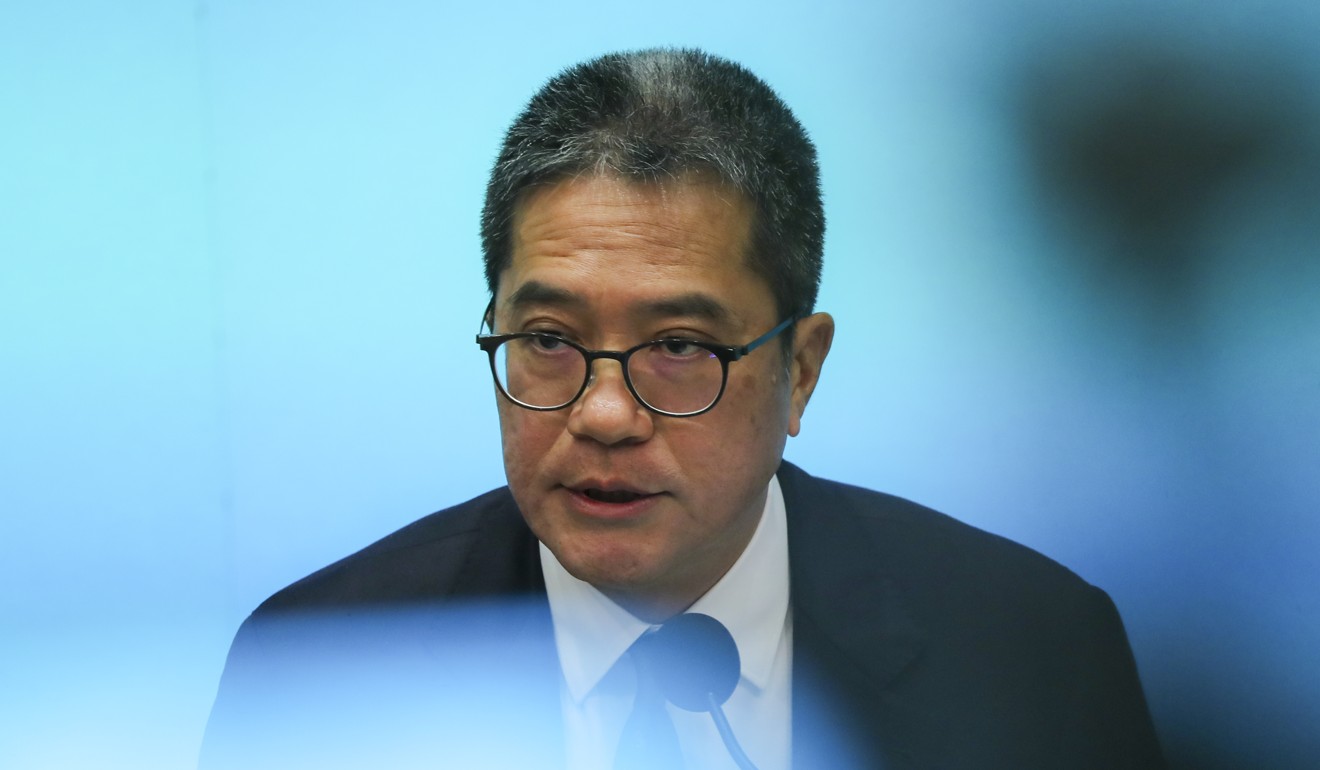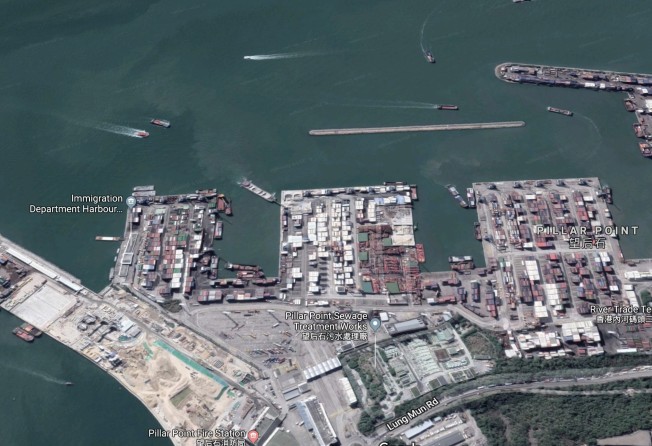
Hong Kong government considers moving trade terminal to make way for new town
- Residential settlement on land including existing site of River Trade Terminal would be on scale of other new towns, says minister
- Freight boss warns against move and district councillors express concern over infrastructure impact in Tuen Mun

Hong Kong’s government is looking at relocating the city’s 65-hectare River Trade Terminal to make way for a major new town in the northwest of the city, the development minister has said.
As one of the land-boosting measures announced in the policy address last Wednesday, a study will be carried out early next year into the development potential of 440 hectares of land along Tuen Mun West to house the proposed residential settlement and a nearby industrial site, subject to funding approval from the Legislative Council.
Under the vision, half of that land would be for the new town and the other half would serve as an alternative site for the container port and other transferred industry.

Explaining the long-term plan on a radio programme on Monday, Secretary for Development Michael Wong Wai-lun, believed the coastal area development could be on a similar scale to other new towns established in Hong Kong.
“We hope to relocate the current logistics and industrial businesses to the 220-hectare proposed reclamation land at Lung Kwu Tan, somewhere more remote in northwest Tuen Mun, thus freeing up another 220 hectares from the River Trade Terminal and its surrounding coastal land for residential development,” Wong said.
Wong added 70 per cent of the 220-hectare area earmarked for residential development could be used for public and subsidised housing, 30 per cent for private residences and a smaller percentage for commercial use, benefiting the city amid housing shortages.
The proposed residential development would be 10 times the size of Taikoo Shing, the popular housing estate in Quarry Bay on Hong Kong Island.
The River Trade Terminal, which opened in 1998, is used to move cargo between Hong Kong and ports in the Pearl River Delta.
While the timetable for the study and development plans remained unknown, Housing Minister Frank Chan said the use of the terminal had been diminishing.
“After the Hong Kong-Zhuhai-Macau Bridge opened to traffic, as well rises for air cargo, the River Trade Terminal is only operating at 25 per cent of capacity,” Chan said.
“The terminal still has its importance in the short-run as many of the Chinese cities are along the coast, and we cannot afford a total shutdown immediately, but we have to consider its future development.”
Another underlying problem is the land lease of the terminal. It is currently rented to a joint venture between Hutchison Port Holdings and Sun Hung Kai Properties until June 30, 2047. Ministers have not yet addressed that issue.
But according to a clause in the site’s land lease agreement, namely the “cessation or diminution of user” clause, if any part of the lot or building erected is no longer fulfilling the purpose of the land for a period of six months, it “shall be lawful for the government to re-enter upon and retake possession of the lot”.
“Theoretically, the government can make use of this clause and forfeit the land when the purchaser is not fully utilising the land according to the conditions,” said barrister and Executive Council member Ronny Tong Ka-wah.
“However, if a case is taken to the court, it is likely to give [the company] another chance before forfeiting the land, while the government may also be able to find a better way to solve the problem by discussing with the terminal owner,” he added.
Tong said a 25 per cent usage of capacity could already be seen as an “evidence” of not fulfilling the purpose of the land lease agreement, “but it is up to the government whether it wants to be harsh on execution of the lease terms”.
The Tuen Mun coastal development, including reclamation of the terminal, was first discussed by the Task Force on Land Supply, appointed by Hong Kong leader Carrie Lam Cheng Yuet-ngor in 2017.
The task force concluded in its report last year that if all industrial facilities next to the terminal were relocated to the newly reclaimed area, which could take anywhere from 15 to 20 years, the terminal site as well as the coastal area, could be suitable for housing.
Plans for the container terminal site to be redeveloped for homes have received mixed feedback from stakeholders.
Stanley Tandon Lal Chiang, chairman of the Lok Ma Chau China-Hong Kong Freight Association, objected to the plans, saying Lung Kwu Tan was not an ideal location for the terminal.
“The terminal in its present location has advantages especially for being so close to the airport and the mainland. It serves as a transitional hub in the logistic industries.”
“Our city does not only need residential buildings, we also need other industries. The government is simply sacrificing us.” Chiang said, mentioning the site was also a strategic area for the industry to store the cargoes.
There are also likely to be a number of significant environmental and transport infrastructure planning challenges to overcome.
Local district councillors have expressed concern that Tuen Mun Road, the district’s main artery, was already packed with vehicles and faced significant traffic congestion every day.
Apart from the Tuen Mun reclamation, Wong also revealed a study into the building of 1000-hectare artificial islands off Lantau would continue, in the hope of getting funding from Legislative Council’s Finance Committee.